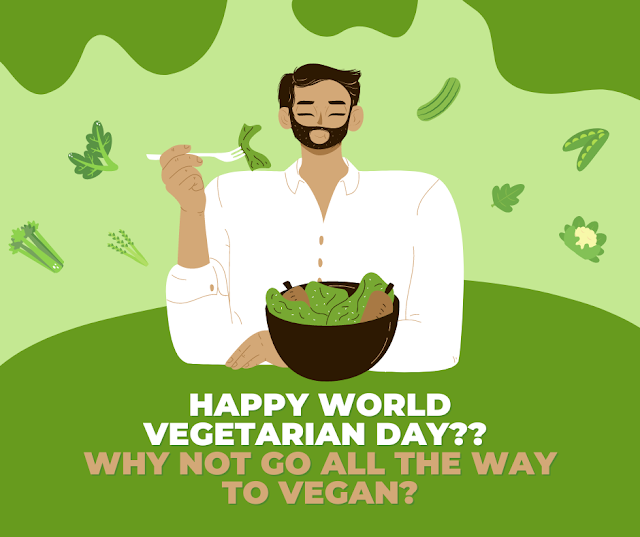As more people become aware of the impact of animal agriculture on the environment, their health, and animal welfare, there has been a growing interest in plant-based diets. While vegetarianism has been a popular choice for many, going vegan is the next logical step for those who want to take their commitment to ethical and sustainable eating to the next level.
In this blog post, we will explore why going vegan is the next step after vegetarianism and the benefits it offers.
What is vegetarianism?
Vegetarianism is a diet that excludes meat, fish, and poultry. However, some vegetarians still consume dairy products, eggs, and other animal-derived ingredients. There are various reasons why people choose to adopt a vegetarian diet, including ethical, health, and environmental concerns.
Why is going vegan the next step?
While vegetarianism is a great step towards reducing animal suffering and the environmental impact of animal agriculture, it still involves the use of animal-derived products. Going vegan takes the ethical and environmental commitment one step further by avoiding all animal-derived products, including dairy, eggs, and honey.
Animal welfare
One of the main reasons people go vegan is because of the ethical concerns surrounding animal welfare. The dairy and egg industries are closely linked to the meat industry, with male calves and chicks often being killed shortly after birth, as they are considered useless by-products of these industries. By going vegan, you can help reduce demand for these industries and support more ethical alternatives, such as plant-based milk and egg replacements.
Environmental impact
Animal agriculture is a leading contributor to climate change, deforestation, and water pollution. It is responsible for a significant portion of greenhouse gas emissions and requires large amounts of land, water, and resources. By going vegan, you can reduce your carbon footprint and help protect the planet.
Health benefits
There are numerous health benefits associated with a plant-based diet, including reduced risk of heart disease, type 2 diabetes, and some types of cancer. A well-planned vegan diet can provide all the necessary nutrients, including protein, iron, calcium, and vitamin B12.
Making the transition to veganism
Making the transition from vegetarianism to veganism can be challenging, but it is achievable with the right mindset and resources. It is important to educate yourself on vegan nutrition, experiment with new recipes and ingredients, and find a supportive community of like-minded individuals.
Conclusion
Vegetarianism is a great first step towards ethical and sustainable eating, but going vegan is the next logical step for those who want to make a more significant impact. By avoiding all animal-derived products, vegans can reduce animal suffering, protect the environment, and enjoy numerous health benefits. Making the transition to veganism may seem daunting, but with the right mindset and resources, it is a rewarding and fulfilling journey.
References:
- Craig, W. J. (2009). Health effects of vegan diets. The American journal of clinical nutrition, 89(5), 1627S-1633S.
- Pimentel, D., & Pimentel, M. (2003). Sustainability of meat-based and plant-based diets and the environment. The American journal of clinical nutrition, 78(3), 660S-663S.
- Scarborough, P., Appleby, P. N., Mizdrak, A., Briggs, A. D., Travis, R. C., Bradbury, K. E., & Key, T. J. (2014). Dietary greenhouse gas emissions of meat-eaters, fish-eaters, vegetarians and vegans in the UK. Climatic Change, 125(2), 179-192.

Comments
Post a Comment
We welcome your input!